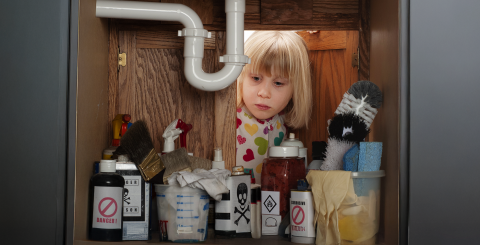Residential Fires: Facts and Fiction

Quebec sees an average of 16,000 fires each year1. Most of them are residential. Though that number has been decreasing since 2010, residential fires continue to do major damage.
Fire Prevention Week runs October 9 to 15 this year. To mark the occasion, we sat down with Annie Marmen, a media and prevention officer with the Quebec City Fire Department (french only), to get a better handle on the causes of residential fires and dispel some common myths on the subject.
Q. What are the most common causes of residential fires?
R.“Smoking paraphernalia, including cigarettes, cigars, pipes, and open-flame objects like lighters and matches, are the most common causes of residential fires,” says Marmen.
“Smoking in bed used to be a common scenario. These days, people smoke outside. People flick their butts onto cedar mulch and other organic materials used in flower boxes and landscape beds. Exterior fires are increasingly common and can quickly spread to the house,” adds Marmen.
The runners-up are electrical fires—often sparked by household appliances—and cooking fires. Little wonder that this year's Fire Prevention Week theme is “It’s Happening in the Kitchen.”
Q. A third of residential fires in Quebec start in the kitchen. What are some ways to stop one from starting?
R.“My first piece of advice would be: Don’t deep-fry anything in a pot.
And don’t leave the kitchen while you’re cooking. It’s easy to forget something on the stove when you’re in another room. A lot of fires get started as a result of carelessness,” says Marmen.
Scarves, long sleeves, and other clothing items can also lead to some rather nasty surprises. Marmen also recommends keeping the lid of your pot handy.
Q. What are some common myths about residential fires?
R.“The idea that you should throw flour, salt, or baking soda on a flaming pan is still really common. It’s strange, really. The right thing to do is so simple—if it’s flaming, put a lid on it”, says Marmen.
“People also don’t realize that smoke detectors only have a 10-year lifespan. Even if your alarm goes off when your toast is burning, it doesn’t mean your device is operating at 100% effectiveness and will detect smoke from a fire. “The whole device needs to be replaced every 10 years,” she says.
“Some people tell me, ‘I’m a light sleeper, I’ll jump into action if there’s a fire.’ But it takes just three minutes for smoke to spread through a house. And smoke is the real killer. A functional smoke detector is crucial in order to warn people and have them react quickly,” she says.
We hope this post has been informative and that you’ll take all the necessary measures to prevent residential fires. Feel like reading more articles about this subject? Check out our blog section about safety and prevention.
Happy Fire Prevention Week!




